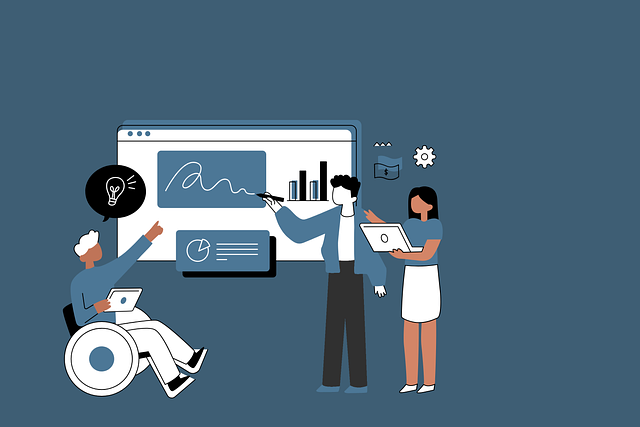Technology has transformed the way marketers work, significantly enhancing their ability to achieve their goals and earn recognition, such as receiving a prestigious glass award for innovation in marketing. Marketing agencies have been able to take advantage of these advances, allowing them to be more efficient and effective than ever before. Here are some examples of how technology has changed marketing agencies:
Integrated marketing tactics
Integrated marketing is an approach that combines different marketing strategies and tactics to reach your audience most effectively. It’s important for agencies that provide integrated marketing services because it allows them to present a cohesive strategy for each client, instead of having separate plans for different channels or campaigns.
Integrated marketing tactics include:
- Social media: Using social media platforms like Facebook, Twitter, and Instagram to distribute content is one example of how brands can use this tactic.
- Email marketing: Sending emails with special offers or updates about new products/services from your company is another way to use email as part of your integrated campaign strategy.
- Print advertising: Creating ads for newspapers or magazines is another marketing tactic that can be used with other methods to create an integrated campaign.
- Direct mail: Sending out postcards and brochures with information about your business is another way to use direct mail as part of your integrated marketing strategy.
Automation and efficiency
The best way to get a handle on your marketing automation is by taking the time to set it up properly. This includes making sure that you’re doing all the things you need to do for your campaigns to run smoothly and effectively, such as:
- Setting up goals and objectives.
- Creating custom audiences based on customer behavior, and demographics. Other data points help define them as individuals rather than just another number in your database (or database).
- Sending out emails at specific times when people are most likely to open them.
More data and analytics
Data is the lifeblood of marketing. The more data you have, the better you can make decisions and optimize your marketing strategy. This means that it’s important to collect as much information as possible about your customers. This goes beyond just collecting their names and contact information.
For example, if someone visits one of your website pages (like a landing page) and then clicks away before filling out any forms or providing any personal details. Also, it’s likely because they were not interested in what you had to offer at that moment. You could use this information by targeting similar people via email campaigns with content related specifically to their interests but only if you know who they are!
Better ROI-focused work
The average marketing agency focuses on tasks. They want to know what you need to be done, and they want it done quickly. If there’s a task that brings in more revenue for the agency, then that’s what they’ll focus on.
But what if we could get better results by focusing on something else? What if we could find ways to make our marketing efforts more efficient by doing less work? This would mean getting better ROI and saving money at the same time!
To help our clients make this shift from “task-based” thinking towards “results-focused” thinking, we’ve developed an approach called Results Oriented Marketing (ROM). The idea behind ROM is simple: instead of focusing on what needs to be done or how long it will take. And focus instead on whether or not each activity brings in profit for your business!
Marketing agency management software
There are many marketing agency management platforms available to help you with managing client relationships and improve efficiency, customer service, and ROI by providing a single platform for managing all aspects of your business.
The software enables you to track your workflow in real-time so that you can deliver on time with high-quality results every time. It also allows for seamless collaboration between team members as well as clients which dramatically increases productivity and reduces costs at the same time.
The software also has tools to help you set up your processes and workflows so that you can streamline your business. It allows for the creation of templates and project plans which can be used as a template for future projects while also providing an easy way to track time spent working on each project.
Technology provides better results when it comes to marketing
Technology is the backbone of marketing. It helps agencies get better results and be more efficient, while also enabling them to collect data. And analytics that can be used to focus on ROI (return on investment).
This shift in focus from branding to sales has been accelerated by technology, which has given agencies access to tools that make it easier for them to track what’s working – or not working – in their campaigns.
With this, the focus has shifted from branding to sales. Agencies are using technology to get better results and be more efficient while also allowing them access to data. And analytics they can use to focus on ROI (return on investment).
Conclusion
The marketing agency industry is changing, and it’s changing fast. With all the new technology on the market today. There are more opportunities than ever before for marketing agencies to streamline their processes. And provide better results for their clients. Whether you’re looking to improve your current workflow or start fresh with something new altogether. Also, there are plenty of options available!







